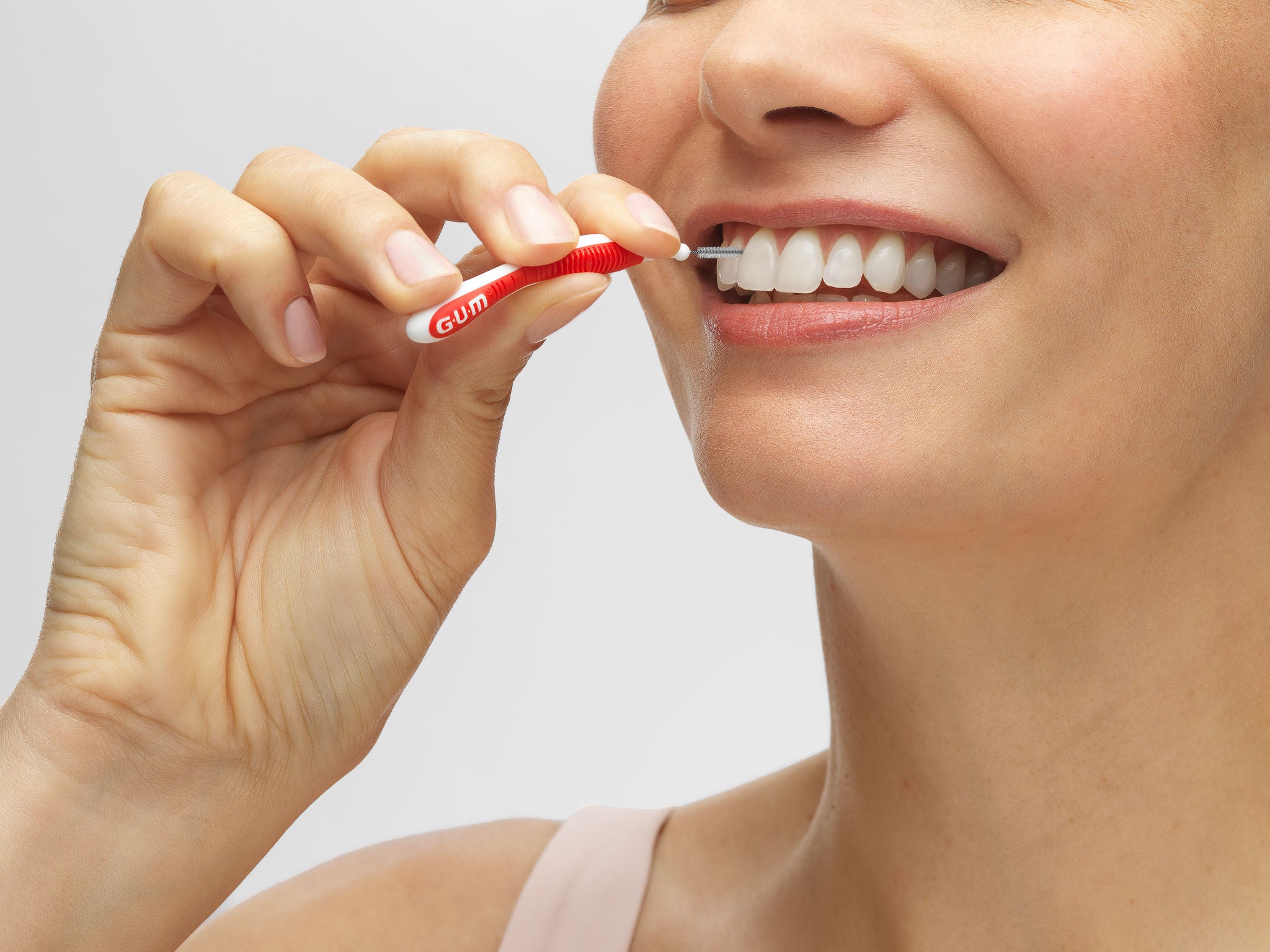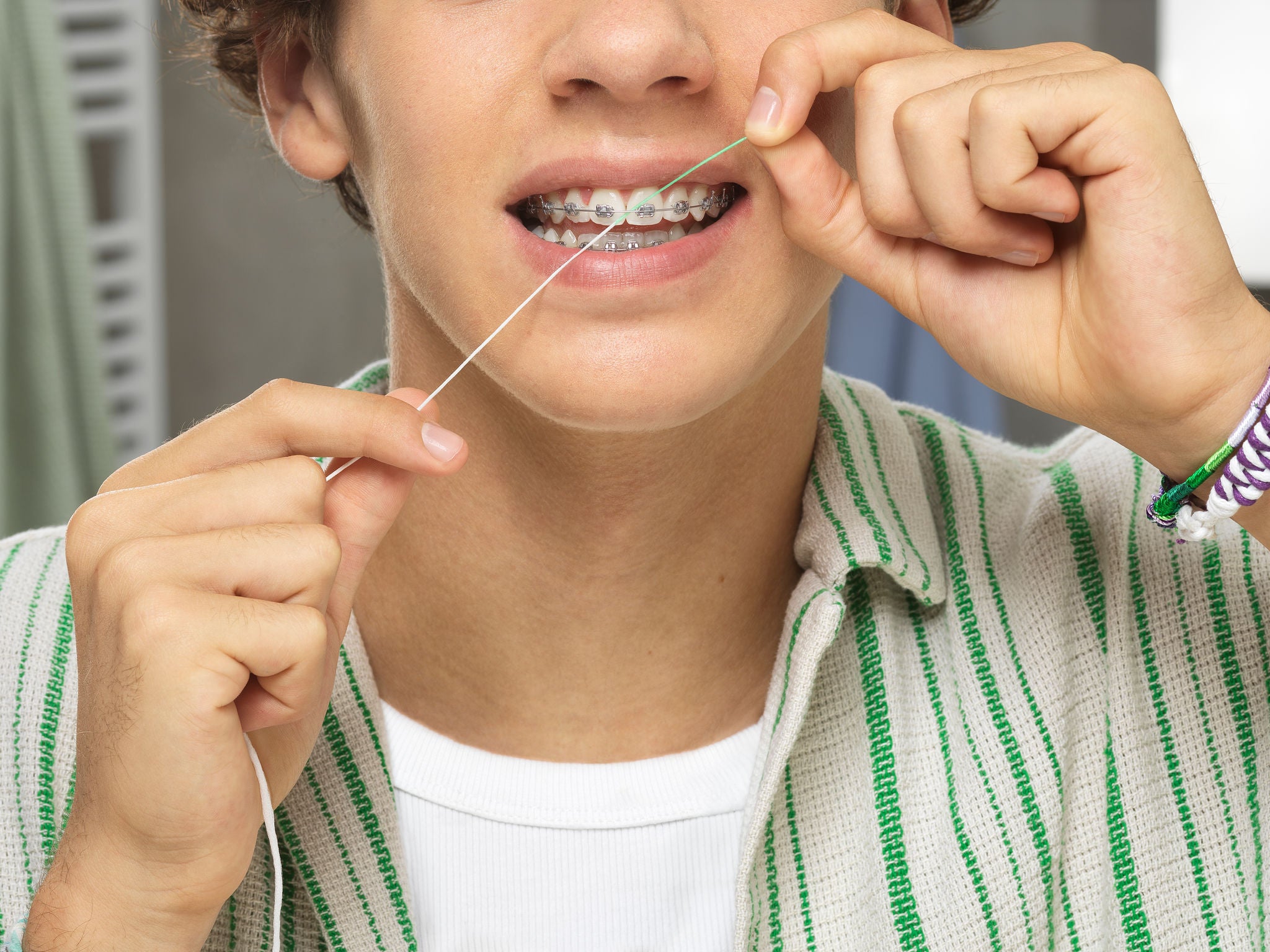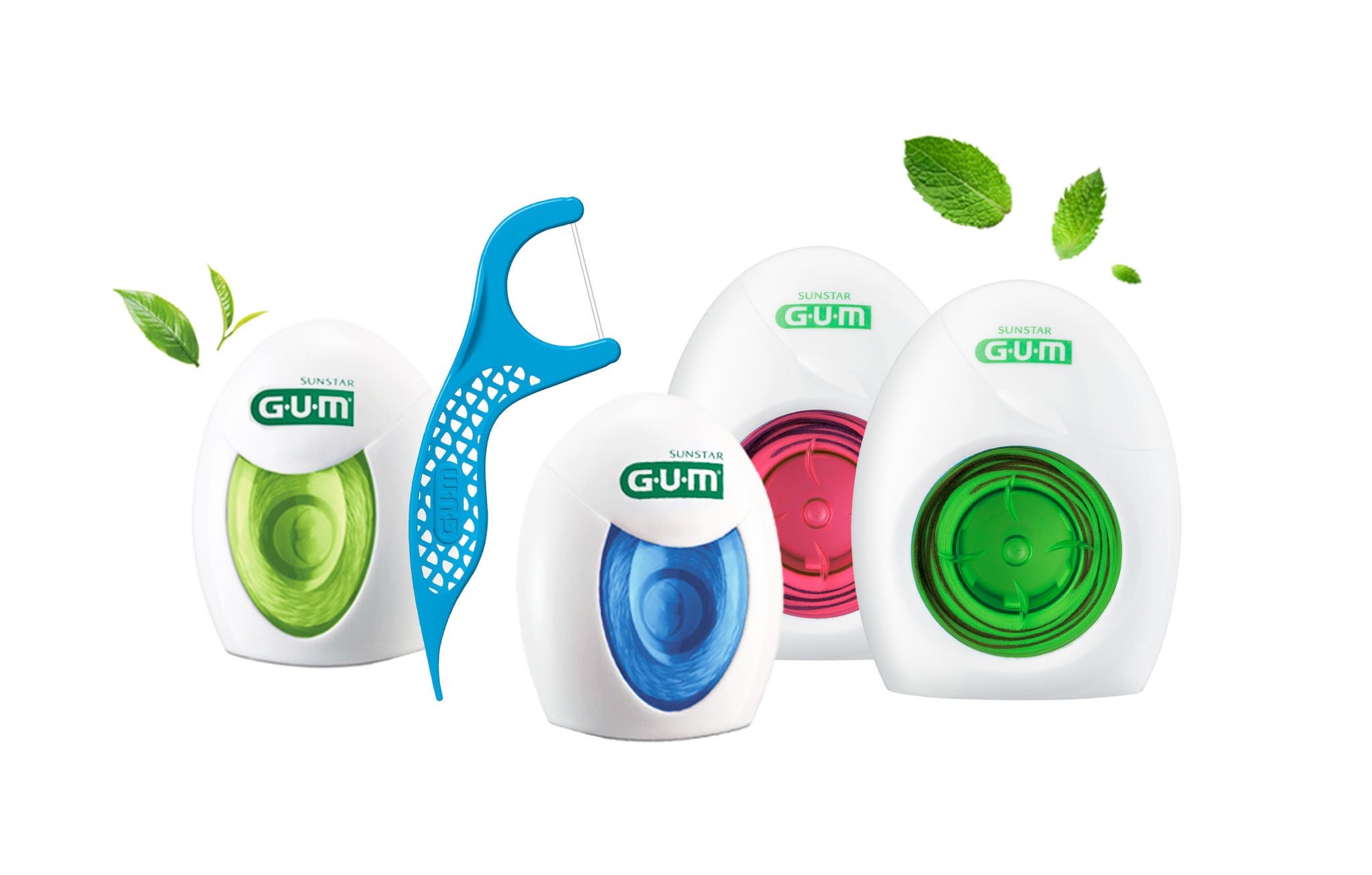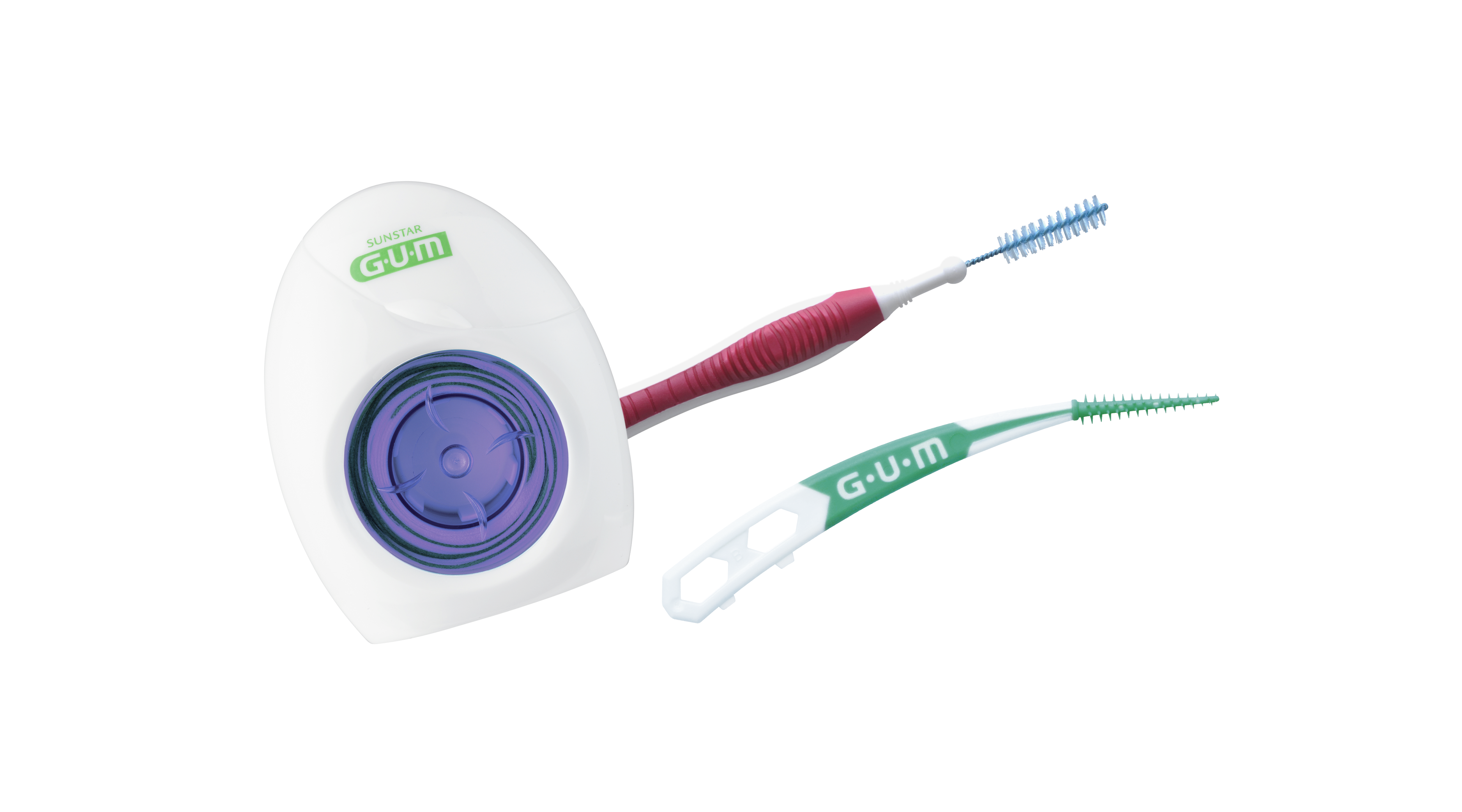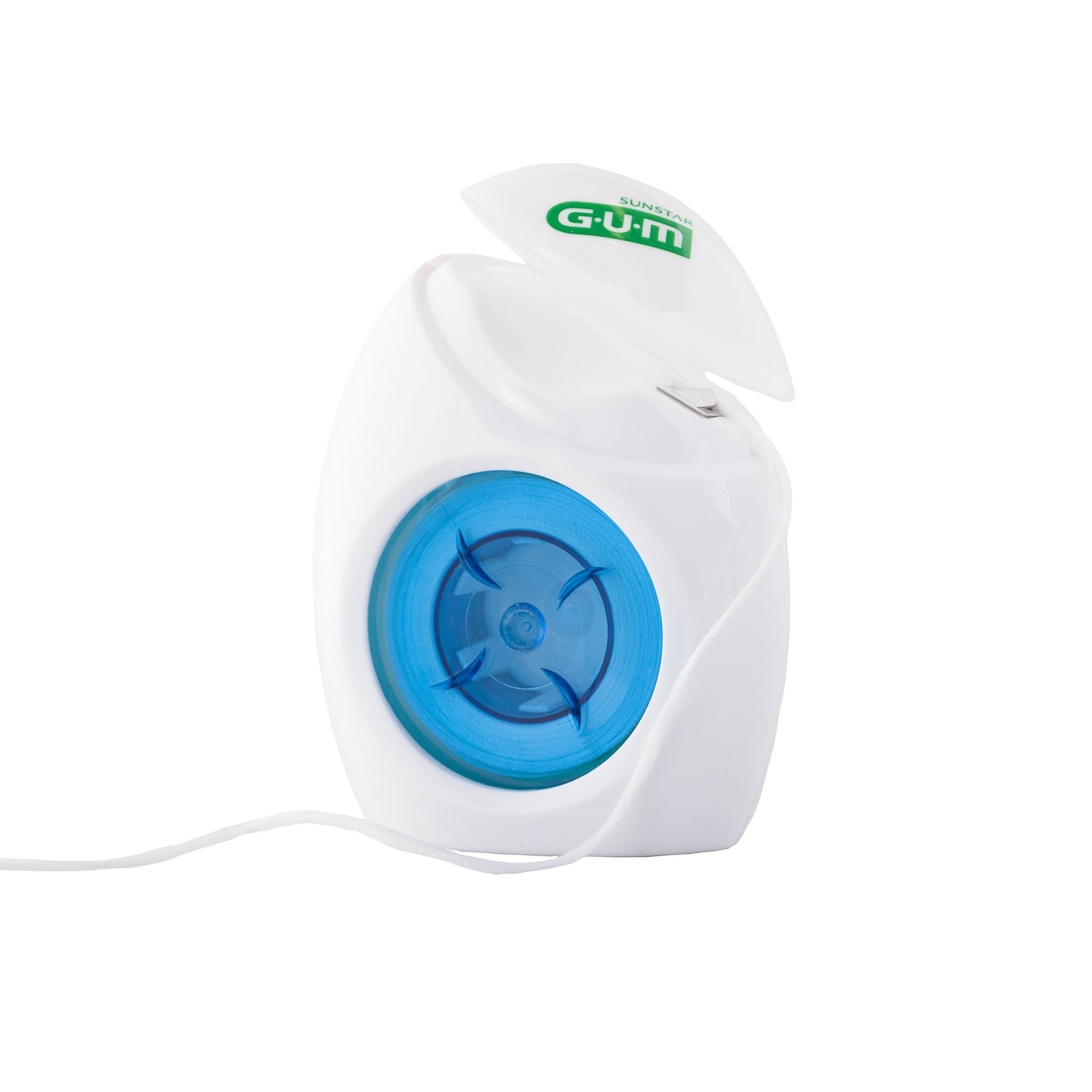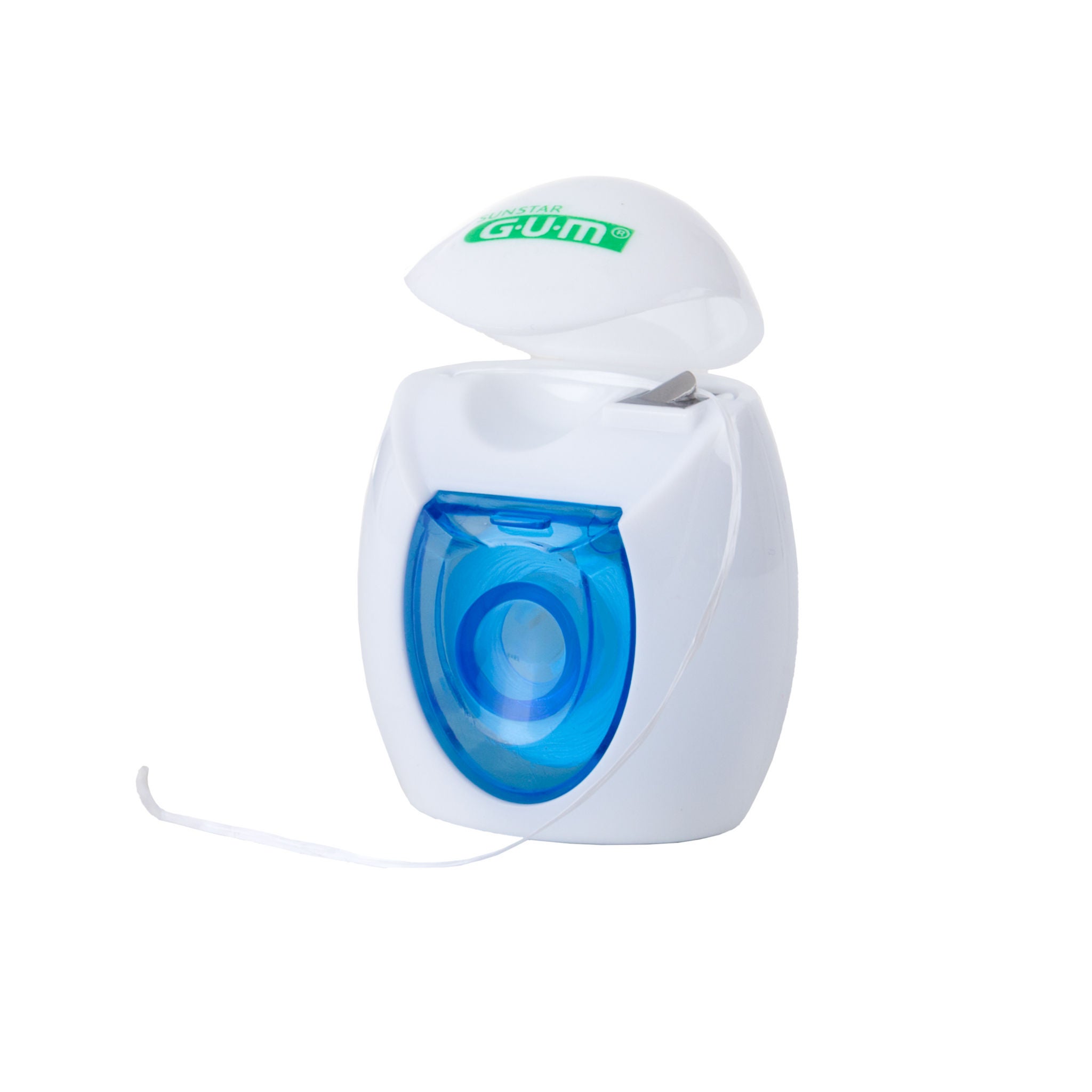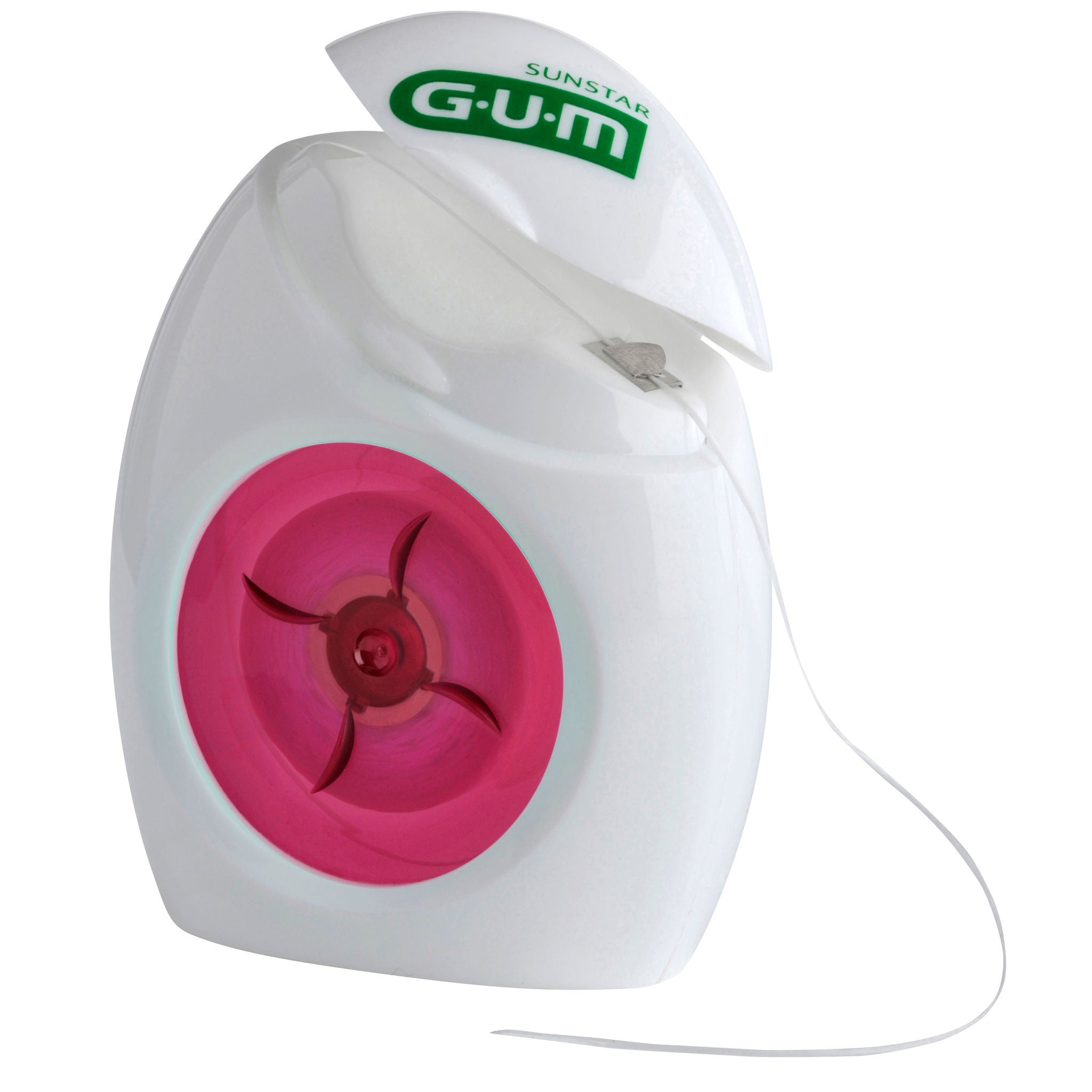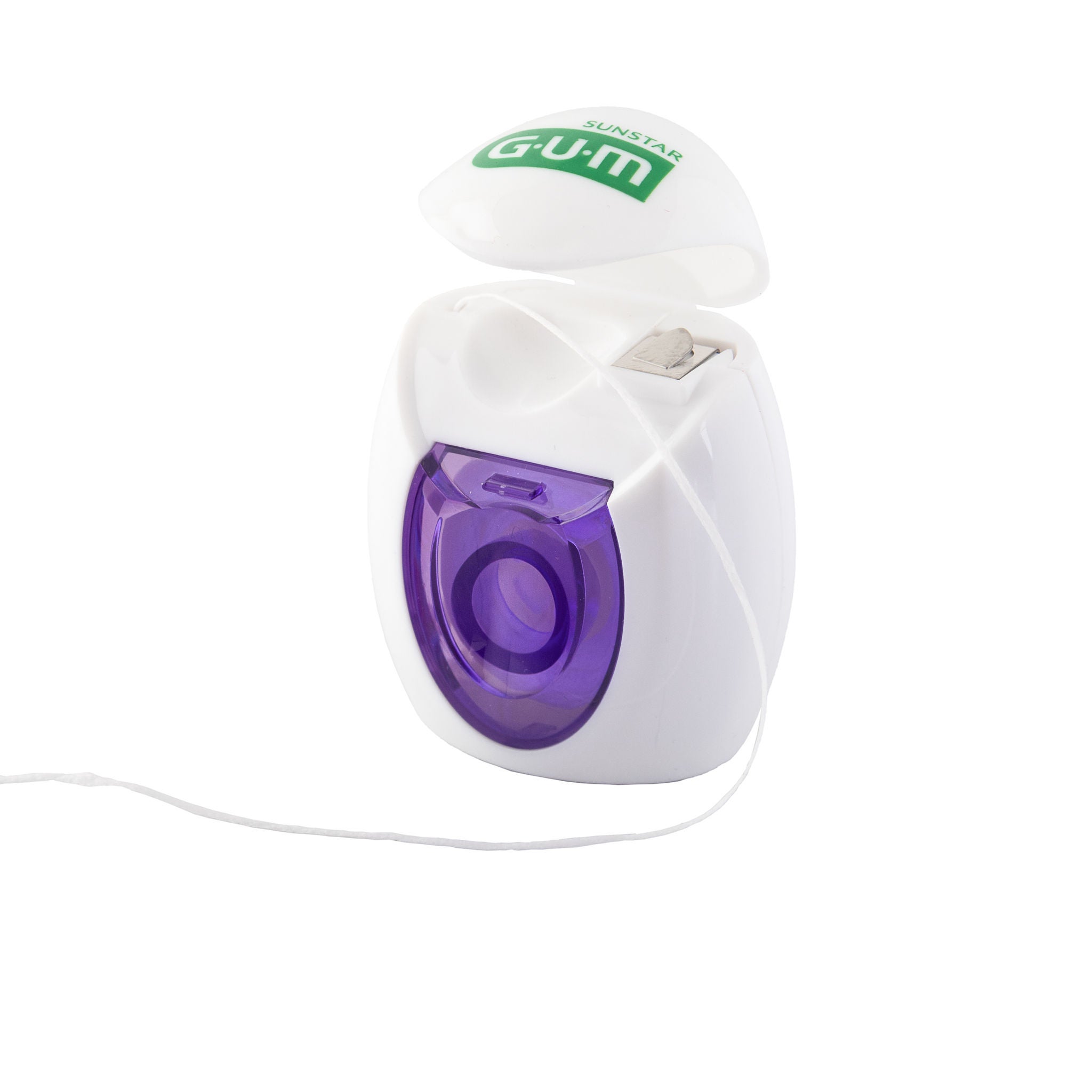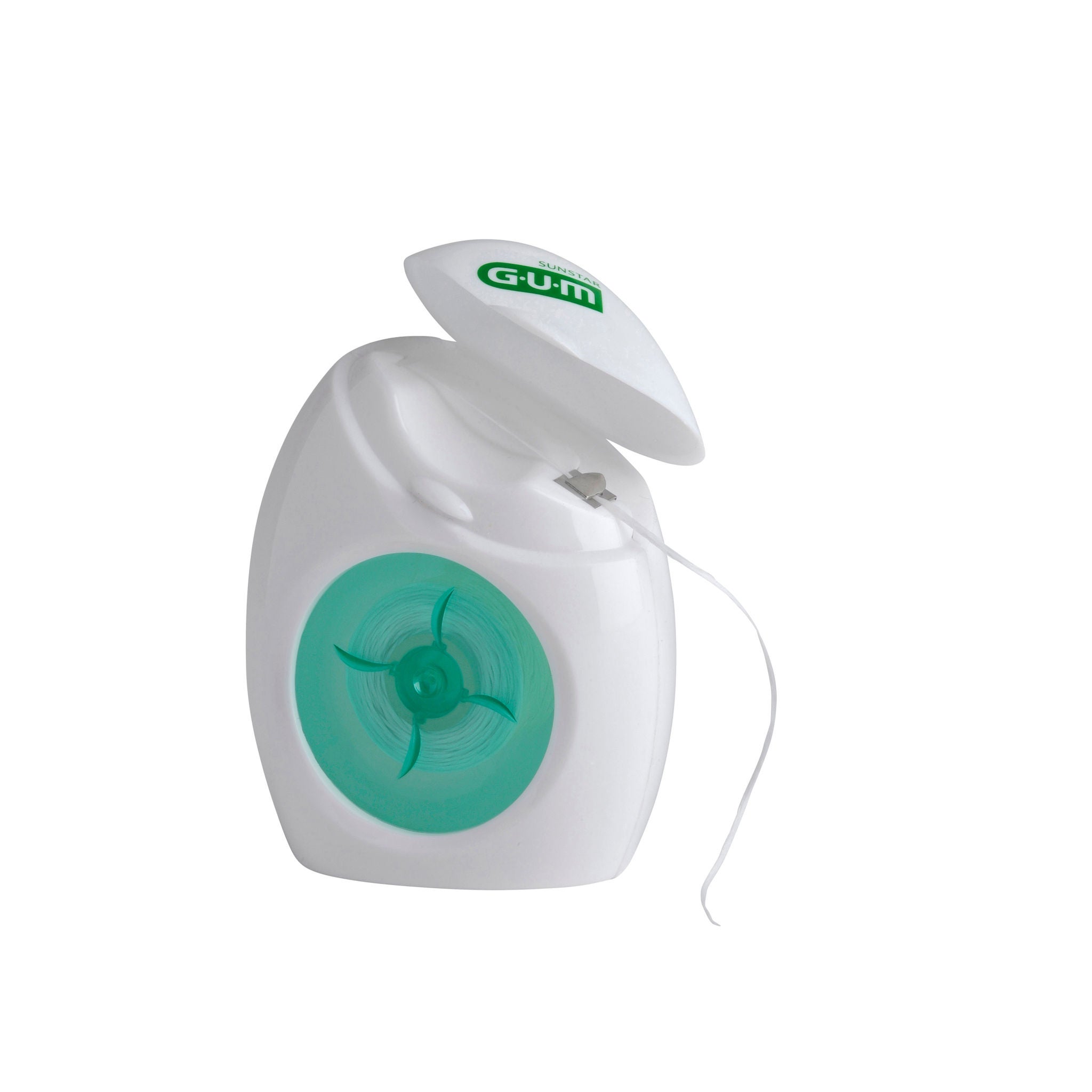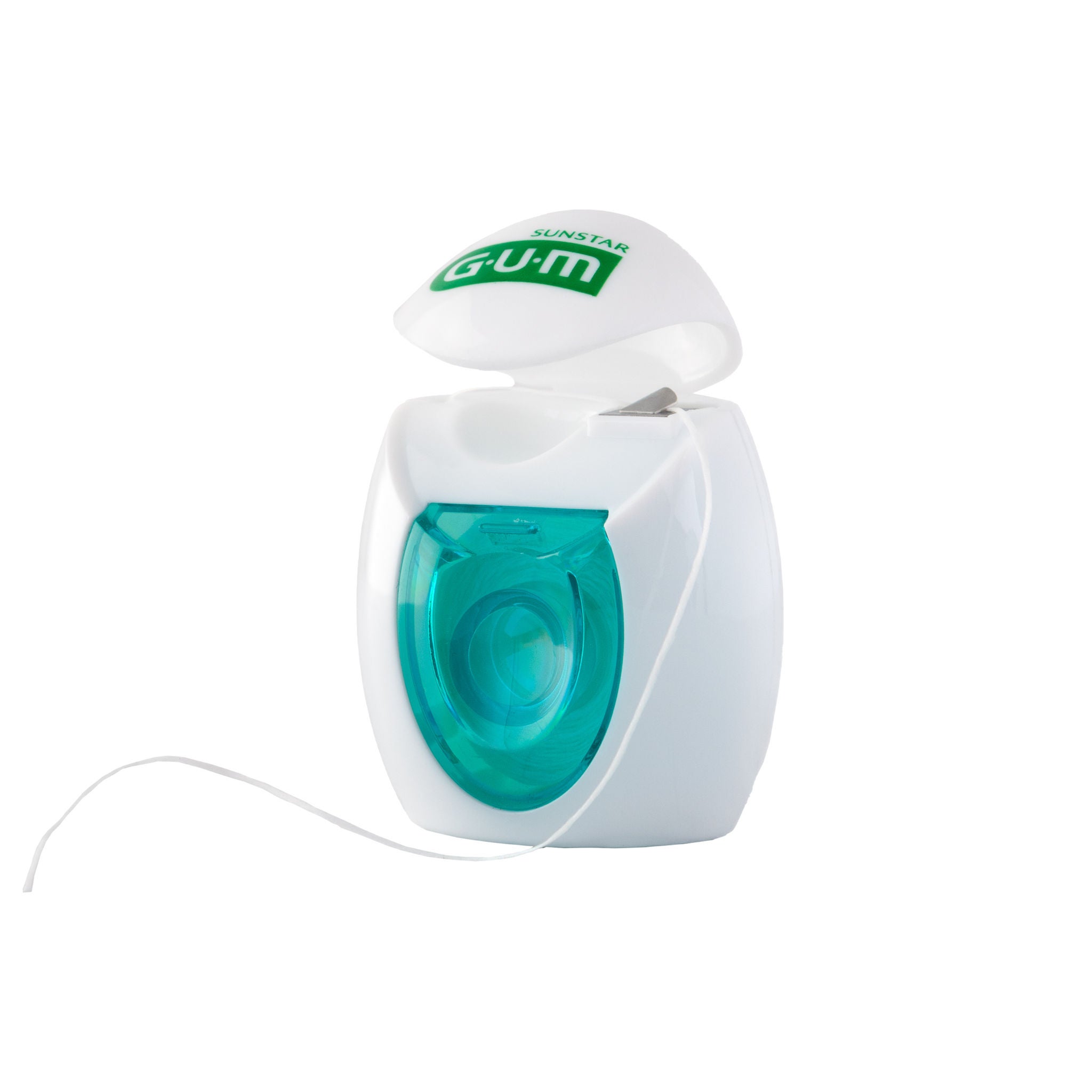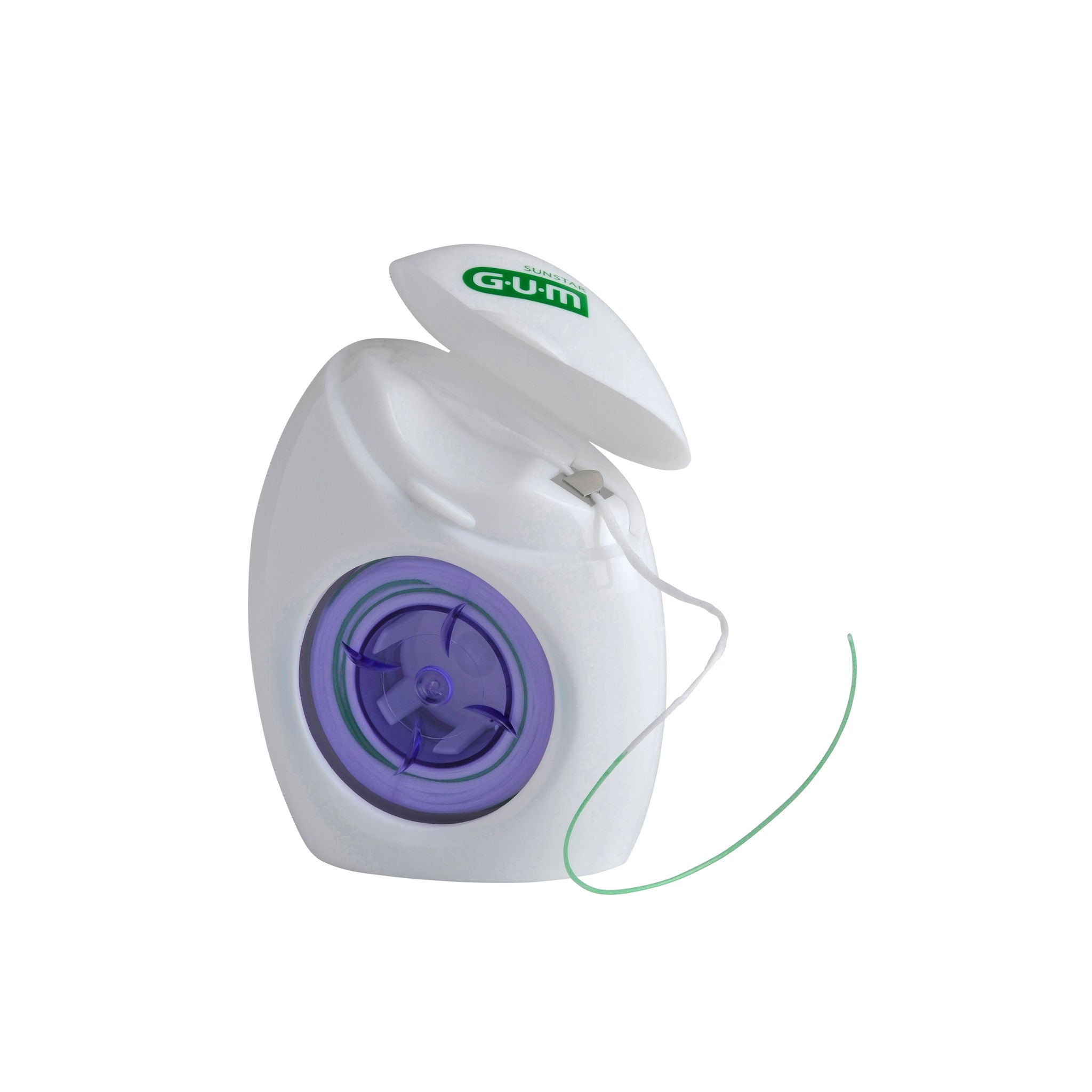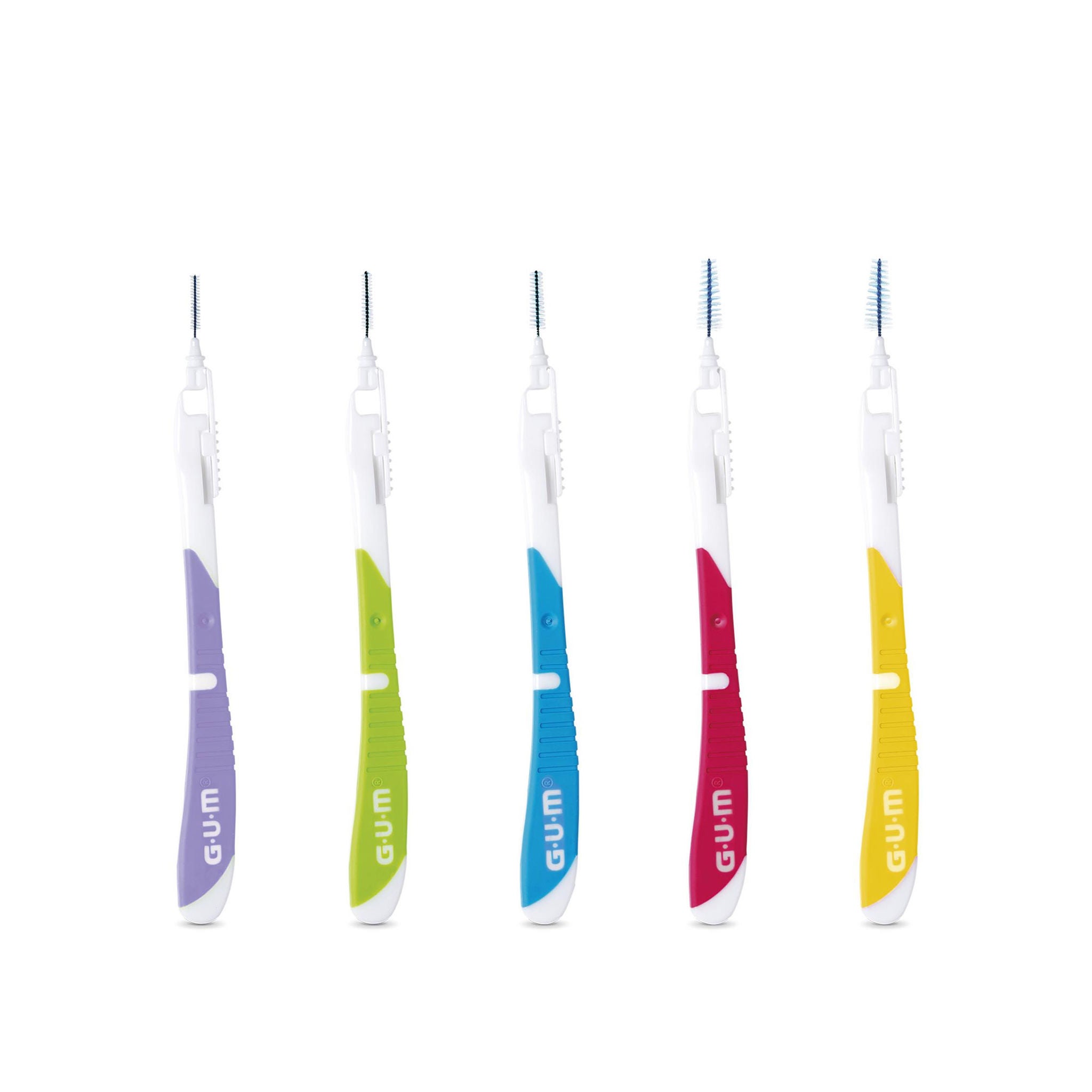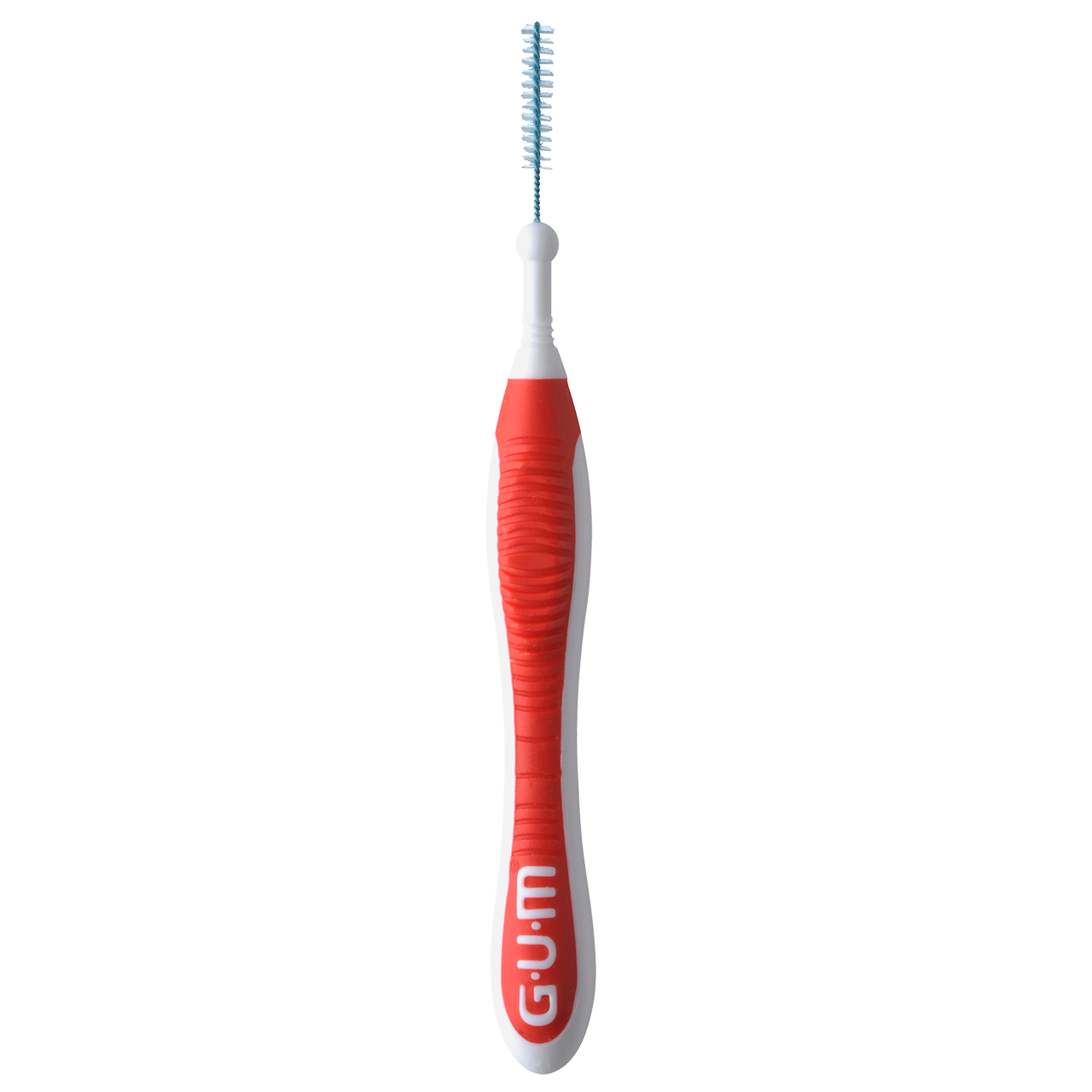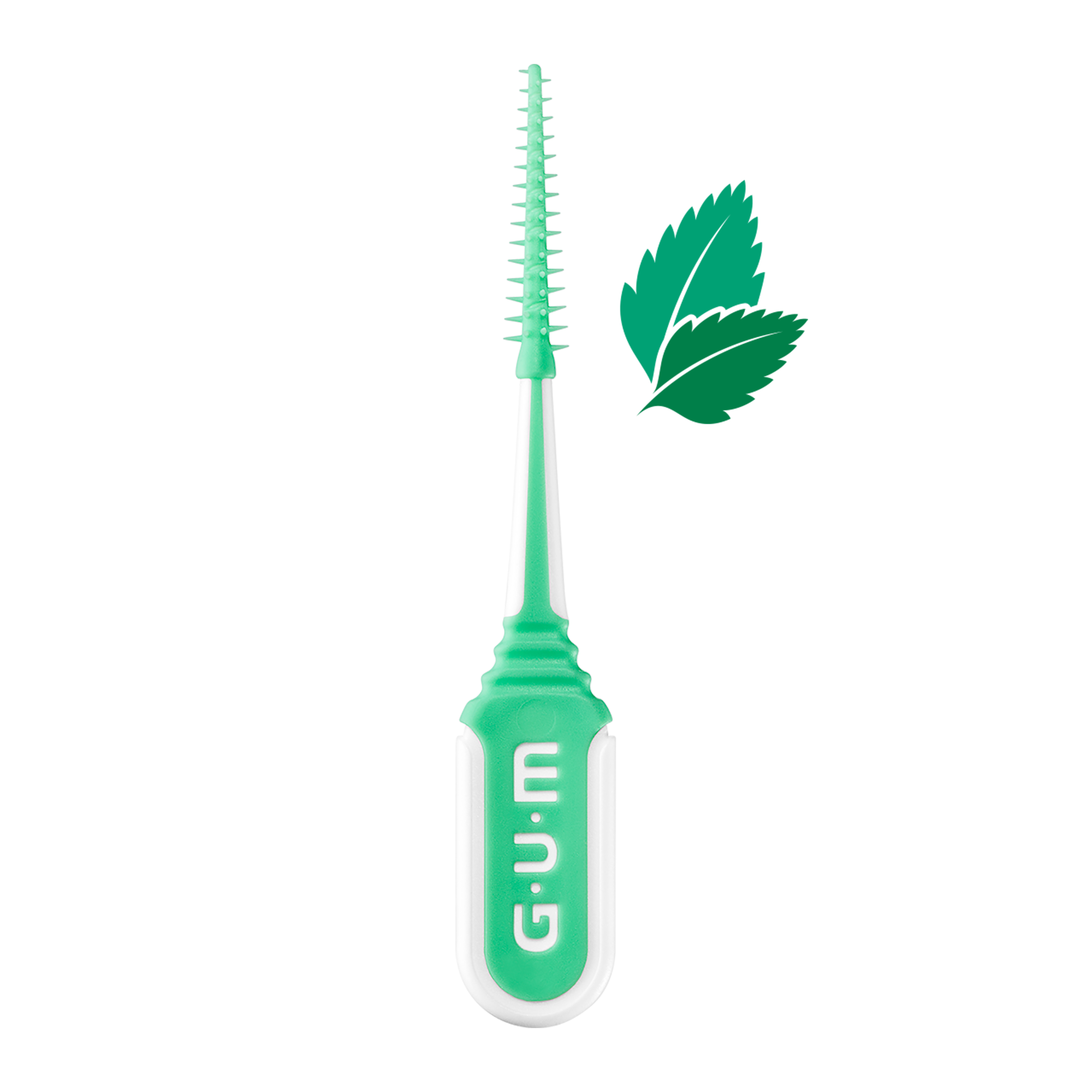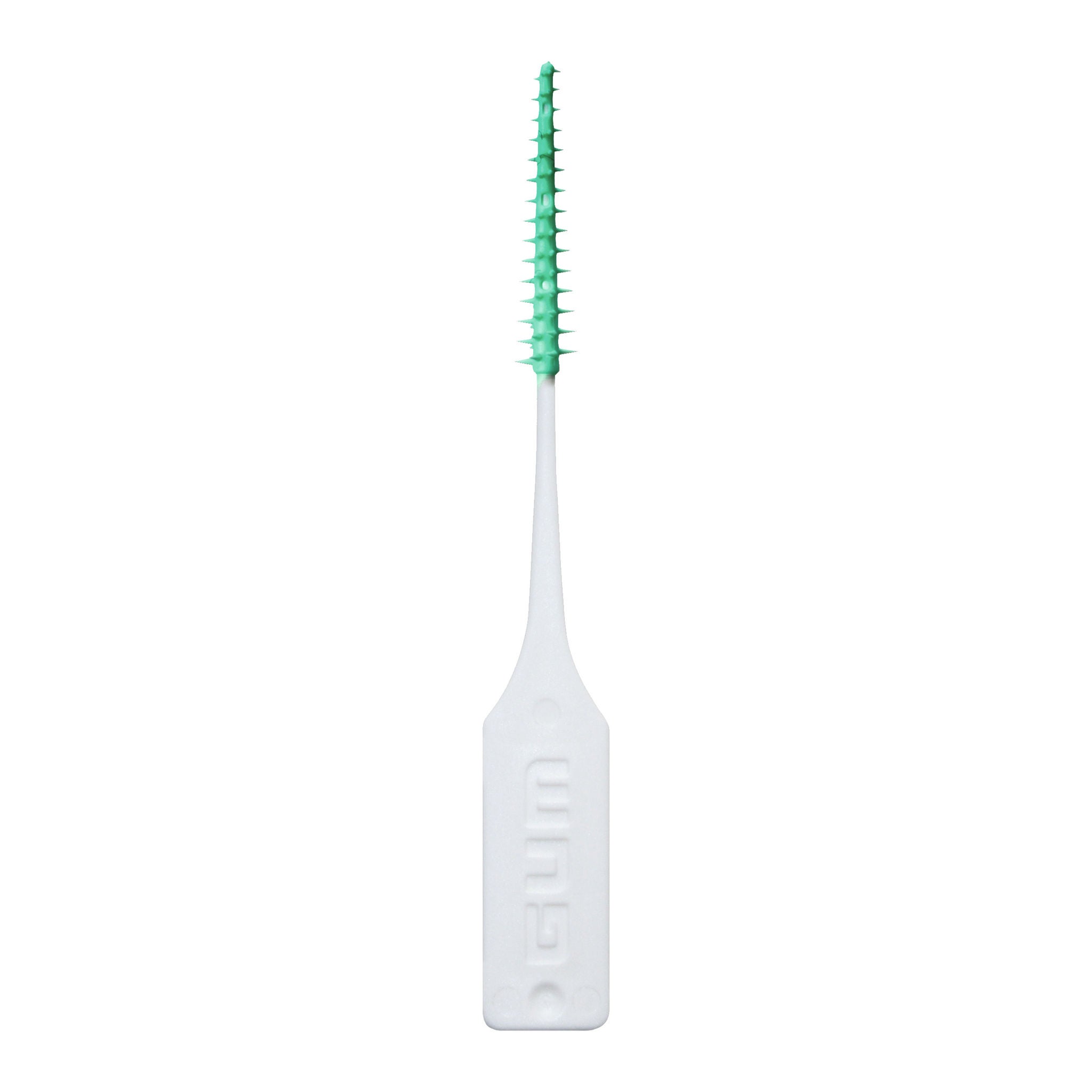Interdental Brush vs. Floss: Which is Better?
If your routine focuses only on brushing, you’re missing out on an absolutely critical aspect of oral health care, because it allows plaque to develop in areas a toothbrush just can’t reach.

When it comes to this essential practice, there are two most popular methods: flossing and interdental brushing. Which is the right choice for you? The answer differs from person to person, but we can provide you with all the information you’ll need to make up your mind.
This is why cleaning between your teeth is important, along with everything you need to know to choose how to do it and learn to do it correctly.
Why is cleaning between your teeth important?
There are several reasons why cleaning between your teeth is an essential aspect of any complete oral health care routine, including:
The removal of interdental plaque
Not matter how thoroughly you brush your teeth, you can’t reach between your teeth with a toothbrush alone. If you don’t clean between your teeth with floss or an interdental brush or pick, you are missing up to 40% of your tooth surfaces, and plaque will build up between your teeth just like it would on your teeth and gum line if you didn’t brush.
When plaque is allowed to build up between the teeth, it can create bad breath and make your teeth look yellow. Worse, if it’s allowed to continue to sit between your teeth, the bacteria in plaque, such as Streptococcus mutans will feed themselves on the sugar you eat and produce acid. These acids will eat away at the enamel of your teeth in a process called demineralization.
Demineralization is the first stage of tooth decay, where your teeth begin to lose calcium and phosphate. If decay is allowed to spread to more sensitive parts of the tooth, such as your dentin, your enamel may collapse entirely, creating cavities or causing tooth sensitivity and tooth aches.
If tooth decay spreads far enough, it can even damage the root and pulp of your tooth, causing damage that can be irreversible without professional care. Eventually, professionals may need to remove a decayed tooth entirely to prevent it from posing further risks to your overall health.
The prevention of tartar formation
Over time, plaque that remains on the surface of your teeth will calcify, or mineralize into calcium, and turn into a substance called tartar (also called dental calculus). Tartar is a darker, harder deposit than plaque that tends to look like yellow, brown, or black stains. Unlike plaque, tartar is not possible to remove from your teeth and mouth without a dental health professional’s help.
Not only does tartar look and smell bad, but it’s an ideal place for more plaque to build up and stick to the inside of your mouth. This perpetuates and even expedites the plaque accumulation and formation cycle, further increasing your risk of plaque-related health challenges, such as tooth and gum disease.
Lowering risk of gum disease
When plaque and tartar are allowed to accumulate between your teeth, they will irritate your gums and lead to swelling, also known as gingivitis, which is the first stage of gum disease.
Left alone, gingivitis can progress to periodontitis, a more advanced stage of gum disease that causes bone and tissue loss around your teeth and has even been linked to general health conditions. At this point, you will require professional intervention to prevent permanent tooth loss and other significant health problems.
As if this isn’t bad enough, periodontitis also erodes your gum’s ability to protect your body from potentially harmful bacteria that could enter through your mouth. When these bacteria bypasses the barrier that is usually imposed by healthy gums, they can enter your bloodstream, spreading to other parts of your body and causing inflammation or even triggering the development or aggravation of systematic health conditions such as diabetes, heart disease, or risk of stroke.
By adding interdental cleaning to your larger oral health care routine, you can ensure that irritants like plaque and food debris don’t rub up against your gums for long periods of time. This will help prevent gingival swelling and substantially lower your risk of gum disease over time - and when your gums are healthy, they help you prevent a whole host of other health complications, as well.
Which method of interdental cleaning should I use?
Both of the popular approaches to interdental cleaning have their pros and cons. Which is right for you will ultimately depend on your personal preference.
Remember: if you want your interdental cleaning to effectively preserve your tooth and gum health and prevent plaque accumulation and disease, it’s not enough to do it once or even “every now and then”; you’ll need to make it a regular (preferably daily) part of your oral health routine.
As you evaluate these pros and cons, therefore, consider which interdental cleaning method you think will be easiest to incorporate into your oral health routine. For best results, learn to practice this technique effectively and then do so regularly.
Pros of flossing
- Clean between tightly spaced teeth: Floss can be used in extremely tight interdental spaces that are not reachable for interdental brushes.
- Remove plaque: Flossing helps get rid of plaque and its bacteria that form between your teeth by gliding smoothly between teeth.
- Eliminate food remnants: Flossing clears the spaces between your teeth of food, which can fester and provide harmful bacteria with the nutrition they need to grow.
- Prevent cavities: Flossing helps prevent the formation of cavities – tiny holes in the enamel of your teeth – by removing plaque particularly in areas your toothbrush can’t reach.
- Keep away gingivitis: Flossing helps prevent gingivitis, which is the early stage of gum disease.
Cons of flossing
- Difficult: Flossing can be difficult because it requires manoeuvring your hands inside your mouth and ensuring the floss reaches the right spots without harming your gums. If you have large or shaky hands, this can make flossing a struggle.
- Takes time: Properly flossing, reaching the gumline between each tooth, can be time-consuming. The effectiveness of your flossing relies on you reaching every spot. People often rush and diminish their efforts with improper technique.
- Discomfort: If you use floss incorrectly, flossing can cause bleeding and discomfort by harming your gums. This can get better over time while you learn using floss, but some people continue to face mild discomfort for the long term. Wrapping floss tightly around the fingers can also be uncomfortable.
- Flossing with braces: Flossing can be hard to do with braces and wires or other orthodontic appliances. Leading to ineffective form or incomplete coverage.
How to floss correctly
Take out a strand of floss around 35-40 cm long and wrap the ends around each of your middle fingers.
Pull the floss at either end until there is a short, taut section between your thumbs and index fingers.
Gently slide this section of the floss between each of your teeth in turn, and be careful not to press down on your gums with too much pressure. Continue sliding the floss in a zig-zag pattern to dislodge debris from between the teeth, then floss beneath the gum line in a gentle up-and-down motion.
Whenever you change sides, use a new, clean section of your floss. If you haven’t flossed recently, a small amount of gum bleeding may be normal. If flossing feels painful or your gums bleed excessively, stop flossing immediately and contact your dental health professional.
For more in-depth instructions on how to floss, check out this video:
How often should you floss?
Dentists recommend flossing at least once daily after meals, though for the sake of building it into your routine, it may make sense to floss every time you brush your teeth. For best results, floss before you brush your teeth. That way, you can catch any debris you loosen out from between your teeth while flossing with your toothbrush.
Interdental brushes or rubber interdental picks
Interdental brushes are tiny, bristle-filled brushes designed to clean larger gaps and reach deeper between teeth for more thorough plaque removal, while rubber interdental picks also are small, flexible tools used to remove food and plaque from between teeth. There are several different varieties, but they generally consist of a hard plastic core with soft rubber or elastomeric bristles attached to it.
In patients suffering from gum diseases, interdental brushes are even more efficacious than floss in the interdental spaces created by the gum retraction. Many people love interdentals because they are easy to use and achieve a “cleaner” feeling compared to flossing.
Pros of interdental brushes and picks
- Remove plaque: Interdental cleaners are highly effective at removing plaque and its bacteria from in between the teeth and along the gumline.
- Eliminate food remnants: Using an interdental cleaner can help you remove food between your teeth, which help bacteria to grow and can even cause halitosis.
- Prevent cavities: Like flossing, interdental cleaning helps prevent the formation of cavities, especially in areas that aren’t easily reached by your toothbrush.
- Keep away gingivitis: Like flossing, interdental cleaning helps to keep gingivitis and gum disease at bay.
- Easy to use: Interdental cleaners – sized to your preferences and to your interdental spaces – are extremely easy to use. They work as a tiny hand-held brush you move in and out between your teeth where you can pass an interdental cleaner (without forcing it in).
- Comfortable hold: Interdental cleaners have a tiny handle and sometimes a small pick at the end which makes them easy to hold and great at getting in between teeth.
Cons of interdental brushes and picks
Discomfort: First-time interdental brush users can find the small interdental cleaners uncomfortable, especially if they are used to flossing and/or invest in the wrong size. It may be best to start small and work up to the right size for you. Being gentle is key. Never force a brush in.
Reaching tight spaces: When teeth are tightly bunched together or you’re trying to reach an extremely small space, the interdental brush may not fit. In this instance, floss can sometimes be the best solution.
Costs: Interdental cleaners can entail more up-front cost than a roll of floss, although the cleaners are reusable so they often end up providing better value in the long run.
How to use an interdental cleaner correctly
Grip the handle and fit the brush lightly between each of your teeth. The brush should fit snugly between your teeth, but it should never hurt to insert. You should never have to push to get the brush to slide between your teeth.
Once between your teeth, gently slide the brush back-and-forth to clean the interdental space and dislodge any plaque or food debris. When you get down to your gums, gently move the brush up and down over the gumline in an up-and-down motion.
If you’re struggling to use your interdental brush effectively, keep in mind that there are multiple varieties available for you to try. For example, if you can’t reach your back teeth, try using an interdental brush with a more flexible, bendable neck.
How often should you use an interdental cleaner?
You should use your interdental cleaner as frequently as you would floss. We recommend at least once a day, but ideally you should use it every time you brush your teeth to establish the habit.
Use your interdental brush before you brush your teeth with toothpaste. This will help make sure your toothbrush cleans away any plaque or debris you dislodge with your interdental cleaner and the fluoride in your toothpaste is more efficient on the interdental surfaces when they are clean.
